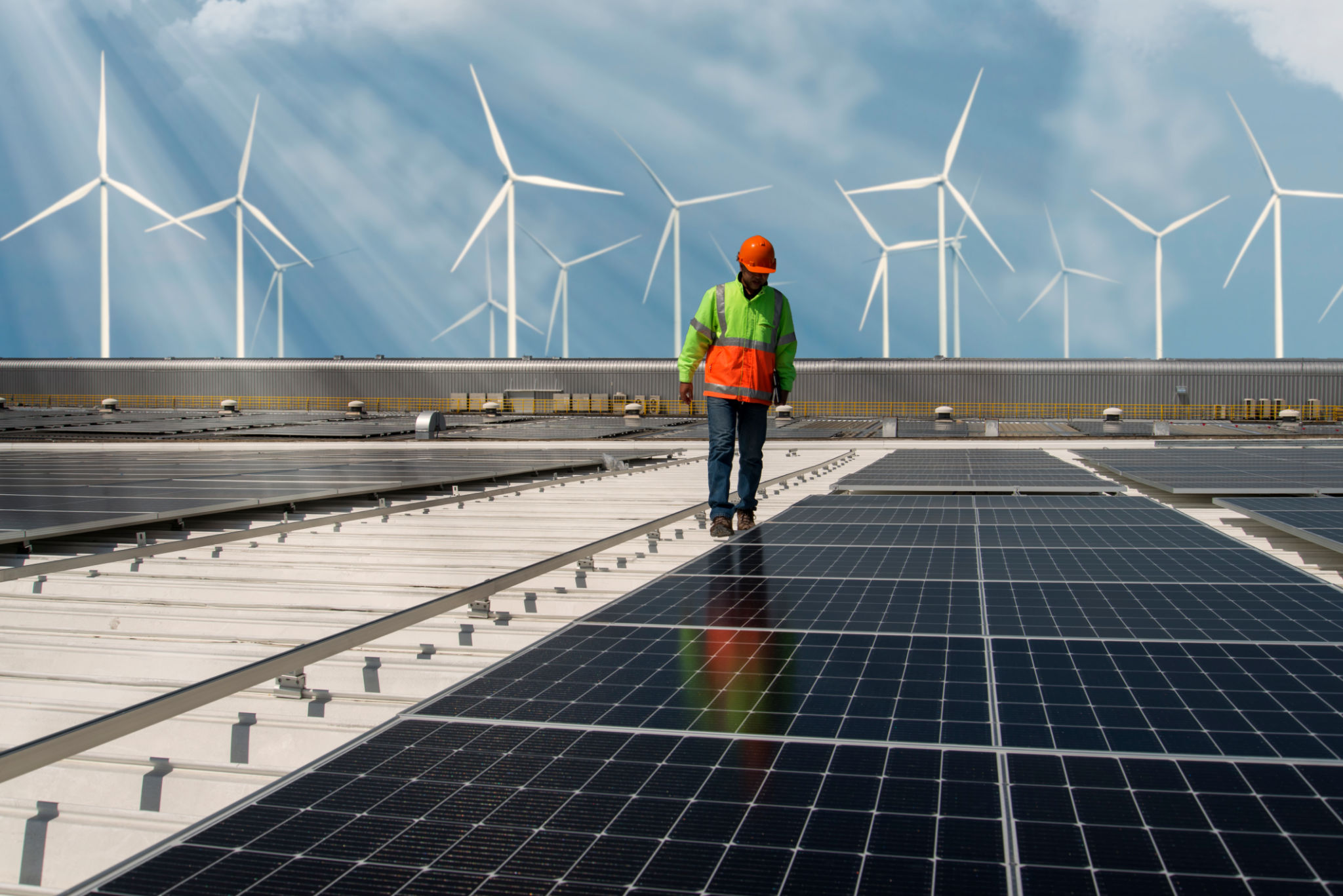Building Tomorrow: Construction Management for Renewable Energy Projects
Introduction to Construction Management in Renewable Energy
The shift towards renewable energy is more than just a trend; it is a critical step in ensuring a sustainable future. As the demand for clean energy sources grows, so does the need for effective construction management to oversee these projects. Construction management plays a vital role in ensuring that renewable energy projects are not only completed on time but also within budget and to the highest quality standards.

The Role of Construction Management
Construction management in renewable energy involves the planning, coordination, and control of a project from inception to completion. The primary goal is to meet the client's requirements while adhering to sustainability practices. This requires a deep understanding of both the construction industry and the specific needs of renewable energy projects, such as wind farms, solar parks, and hydroelectric facilities.
One of the key responsibilities of a construction manager is to ensure that all phases of the project align with environmental regulations and standards. This not only helps in mitigating any potential environmental impacts but also enhances the project's credibility and acceptance among stakeholders.
Challenges in Renewable Energy Construction
Building renewable energy infrastructure presents unique challenges. These projects often require construction in remote locations with limited access, posing logistical challenges. Additionally, the integration of new technologies demands specialized skills and experience, which can be scarce in the workforce.

Another significant challenge is managing the supply chain to ensure that materials and components are delivered on time. Delays can lead to increased costs and project setbacks, emphasizing the need for meticulous planning and coordination. Construction managers must also navigate regulatory hurdles and secure necessary permits, which can vary significantly by region.
Innovative Solutions and Technologies
To address these challenges, construction managers are increasingly turning to innovative solutions and technologies. The use of Building Information Modeling (BIM) allows for better planning and visualization, reducing errors and improving efficiency. Drones and other remote sensing technologies provide valuable insights into site conditions, aiding in decision-making.
Moreover, adopting sustainable construction practices, such as using eco-friendly materials and minimizing waste, is becoming a standard requirement in renewable energy projects. These practices not only reduce environmental impacts but also improve the project's sustainability credentials.

The Future of Construction Management in Renewable Energy
The future of construction management in renewable energy looks promising as technology continues to advance and sustainable practices become more ingrained in industry norms. As the world moves towards a greener future, the demand for skilled construction managers who can navigate the complexities of renewable energy projects will only increase.
By embracing new technologies and sustainable practices, construction managers can ensure that renewable energy projects are successful both economically and environmentally. This not only helps in reducing carbon footprints but also contributes to building a robust infrastructure for future generations.
In conclusion, construction management is pivotal in delivering successful renewable energy projects. By overcoming challenges through innovative solutions and sustainable practices, we can build a cleaner, more sustainable tomorrow.

